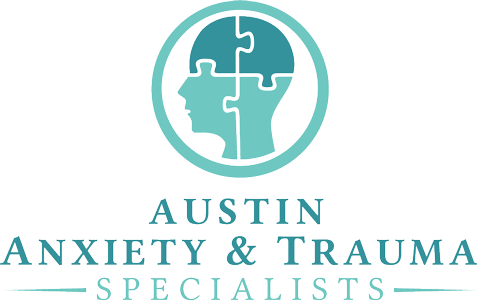It’s normal to have thoughts like, “I’m not good at anything” or “I’m useless” every now and then. Especially when times are tough, stress levels soar, and demands keep coming.
But if these corrosive thoughts won’t go away, it’s likely negative beliefs about yourself have lowered your self-esteem. Self-esteem refers to your sense of personal worth, value, and confidence.
Low self-esteem can wreck our lives because it traps us in a cycle of negative self-talk. We feel like we just can’t lose weight, we just can’t pass this class, we just can’t get over this relationship hurdle. We feel stuck because we just can’t improve. But we think we just can’t improve because we’re acting on faulty data— negative beliefs about ourselves. In order to create change in your life, you have to change the way you think about yourself.
3 Steps to Change How You Think About Yourself
Let’s take that original negative thought, “I’m not good at anything.” Telling the mirror “You’re smart, you can do this!” doesn’t magically make you feel good about yourself. Here’s how you can proactively address negative thoughts with kindness, compassion, and construction:
Step 1: Be kind to yourself
Imagine someone you care about was having a hard time. If your best friend, mother, partner, cousin, dentist said, “I feel so untalented,” would you say, “Yeah, you’re such a loser. You never improve and you never will”?
We doubt you would. Could calling your loved one a loser inspire change for the better? Probably not. They’d likely feel even worse about themselves.
The same applies to you. Your first step is to cut the crud and change your language when you talk to yourself. Putting yourself down is not motivating at all. Negative self-talk limits you. Instead, recognize how you’re feeling in the moment and validate it. For example:
- “I understand that I’m feeling useless and stuck in place.”
- “I’m feeling frustrated right now and that’s okay.”
- “At this moment, I don’t know what I want to do in my life.”
Instead of digging up past failures and name-calling, acknowledge what you’re feeling in the moment.
Read: How to Regulate Your Emotions Without Numbing Them Out
Step 2: Be compassionate
In order to change how you think about yourself, it’s important to practice self-compassion. Self-compassion means accepting the fact that you are human, and humans make mistakes. You don’t have to approve of those traits you’re criticizing (lazy, out of shape, irresponsible, etc.), but you do need to accept that what your feeling is normal.
What’s going on that makes you feel like you’re not good at anything? Retrace your steps on those feelings, whether by journaling, talking to someone in your support system, or better yet— with a therapist.
Understanding why we behave the way we do helps us better accept our actions. Even the ones we don’t like. For example, you might find that you’re struggling to learn something new, and that’s making you feel talentless. But it’s totally normal to experience stress and push-back when taking on something new. You might be frustrated to not see the progress you want, but you don’t have to be so hard on yourself because what you’re experiencing is normal.
Then, remind yourself, you don’t have to be stuck in that feeling.
Step 3: Be constructive
Now that you’ve changed the way you talk to and think about yourself, you are free to change your behavior.
Maybe you played video games all day instead of studying and now you’re beating yourself up about it. You’ve learned through self-compassion that it’s normal to have a lazy day. Just because you were lazy today doesn’t mean you are a lazy person. Tomorrow you can do something different.
Set small, manageable goals. We’re not talking about big-picture goals like starting a business, learning Spanish, or being more productive. Write down specific, measurable tasks that you can check off and feel good about yourself for attaining.
Change the way you think about yourself and you can change your behavior.
It can get better.
We understand how impossible it can feel to break out of that cycle of negative self-talk. But it’s not impossible. You may just need professional help—and that’s totally normal too.
Our therapists at Austin Anxiety and Trauma Specialists offer online counseling to all residents of Texas and in-person sessions at our Austin branch. Book a session with us today and we’ll match you with a therapist who can help you transform the way you think about yourself. You can feel good about yourself again.






